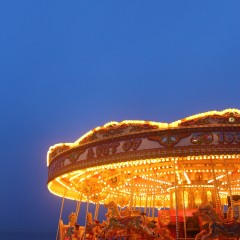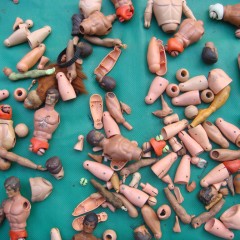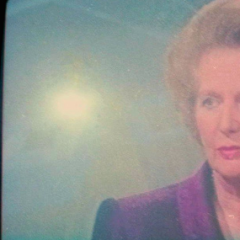Call For Papers: Action Writing
The Politics of US Literature, 1960 to the Present 3rd July 2015 Birkbeck, University of London Organisers: Pippa Eldridge, Catherine Flay Can literature have a political impact? Literature played a role in inspiring as well as representing the post-war American counterculture, with writers acting as socio-political leaders as well as cultural icons. Many of the arts saw revolutions in style, with the emergence of action painting, rock and roll and postmodernism. But was the literary revolution just an enactment, within a closed discipline, of the mood of the times, or might it be seen as somehow enacting politics in itself? As the American government policed taste through new rulings such as obscenity laws, art became contested terrain between the mainstream and its oppositions. Since this flurry of stylistic overhauls in the arts, and since the failure of the post-war revolutionary political programme, has literature lost what political force it may once have had? Is literature now concerned only with recording, with emphasis once again on representation rather than the creation of novelty, its own seminal moments existing only in the past? And are the utopias envisioned in contemporary fiction only escapist fantasy rather than manifestos of intention? Does anybody even read anymore? This conference seeks to explore the ways in which literature affects lived reality, if indeed it does, and asks whether it is the message behind the writing that could carry such intent, or the form of expression itself. Presentation topics may include, but are not limited to: Modes of representation and uses of genre Histories of counterculture Literature of war Realism After-narratives: post-Auschwitz, post-Vietnam War, post-Cold War, post-9/11, post-Crash, post-history. Polemics of fiction writing Novelists as political activists Keynote Speakers: Dr Martin Eve (Birkbeck, University of London) Dr Michael Hrebeniak (University of Cambridge) Abstracts of no more than 350 words to be sent to actionwritingbbk@gmail.com by 6th February 2015. Tweet Image: Jackson Pollock sink by StripeyAnne, used under a CC BY-ND...
Kazuo Ishiguro & Memory
A special guest lecture by Dr Yugin Teo, University of Sussex Tuesday 9 December 2014 6-7:20pm G15, Malet Street Building, Birkbeck, University of London Kazuo Ishiguro has been preoccupied with the theme of memory since his first novel. How we remember and what we choose to remember have frequently been key considerations in his oeuvre. In an interview upon the publication of When We Were Orphans, Ishigruo stated that nostalgia, in its purest form, 'is to the emotions what idealism is to the intellect', that it is a way of 'longing for a better world'. Unlike many writers and critics who tend to view nostalgia as a negative trait, Ishiguro chooses to view it positively, utilising nostalgia (along with memory) as a key element in his work that is evident in his novels and short fiction. Paul Ricoeur was a key figure in twentieth century continental philosophy who maintained a strong interest in the field of literature. He had been preoccupied with the themes of memory, forgetting and recognition toward the end of his life, particularly in the different ways in which we remember and forget key events, how we recognise different versions of ourselves, and how as social beings we receive mutual recognition from within a community. Utilising various aspects of Ricoeur’s theories, along with work by Freud, this presentation examines the themes of memory, nostalgia and recognition across a selection of Ishiguro’s writing, demonstrating the uniquely profound and elegiac nature of his work. The research in this presentation is part of the framework of the work of memory from Yugin Teo's recently published book Kazuo Ishiguro and Memory (Palgrave). Tweet Images by Yugin...
Sherryl Vint at Birkbeck
27 November 2014 7:30-9pm Keynes Library, Gordon Square We are delighted to welcome Professor Sherryl Vint from the University of California, Riverside to Birkbeck this November. Professor Vint's lecture will be entitled: 'Reinventing Death: Identity and Embodiment in Transplant Narratives'. Sherryl Vint is one of the leading scholars of Science Fiction in the world today. She is author of Bodies of Tomorrow: Technology, Subjectivity, Science Fiction (2007), The Routledge Concise History of Science Fiction (with Mark Bould) (2011), Animal Alterity: Science Fiction and the Question of the Animal (2012), The Wire (2013) and Science Fiction: A Guide for the Perplexed (2014). She is co-editor (with Mark Bould, Andrew Butler and Adam Roberts) of Fifty Key Figures in Science Fiction and The Routledge Companion to Science Fiction (2009). Tweet Image by fixedgear, under a CC BY-ND licence. Banner image by Nick Sherman under a CC BY-NC-SA...
1979 Revisited
The Cultural Production of 'Structures of Feeling' under Thatcherism 21 November 2014 1-5pm Keynes Library, Room 114, 43 Gordon Square Free entry; booking required This working seminar will explore the mass 'democratization' of cultural production during the late 1970s and 1980s, from radical printshops and writers' workshops to film co-operatives and community art projects, all of which contributed to a lively, alternative, and oppositional, culture under Thatcherism. The seminar will also draw upon Raymond Williams's concepts of 'structure of feeling' and 'alternative', 'oppositional' and 'emergent' cultures, as a means for recovering the 'lived experience' of others under Thatcherism. A range of 'grassroots' creative practices and cultural forms will be discussed (e.g. community radio, film and video, print ephemera, badges, arts, graphic design, music). As a 'working seminar', it is designed to maximise participation in discussion to explore the connections between grassroots cultural production and the 'structure(s) of feeling' of people’s lived experiences under Thatcherism. The idea for the seminar has been developed by visiting scholar Herbert Pimlott who is working with the Birkbeck Institute for Social Research in 2014-15. Registration & coffee from 12.30pm Facilitators: Herbert Pimlott (BISR Visiting Research Fellow) and Sophie Hope (Birkbeck) Contributors include: Jim McGuigan, Jess Baines, Pat Holland, Anne Robinson and Patrizia diBello Outline reading available: An introduction to Raymond Williams's concepts will be available prior to the seminar: e-mail hpimlott@wlu.ca. Tweet Image by Danny Birchall, used under a CC BY-ND licence. Banner image by R. Barraez D'Lucca under a CC BY...





Recent Comments